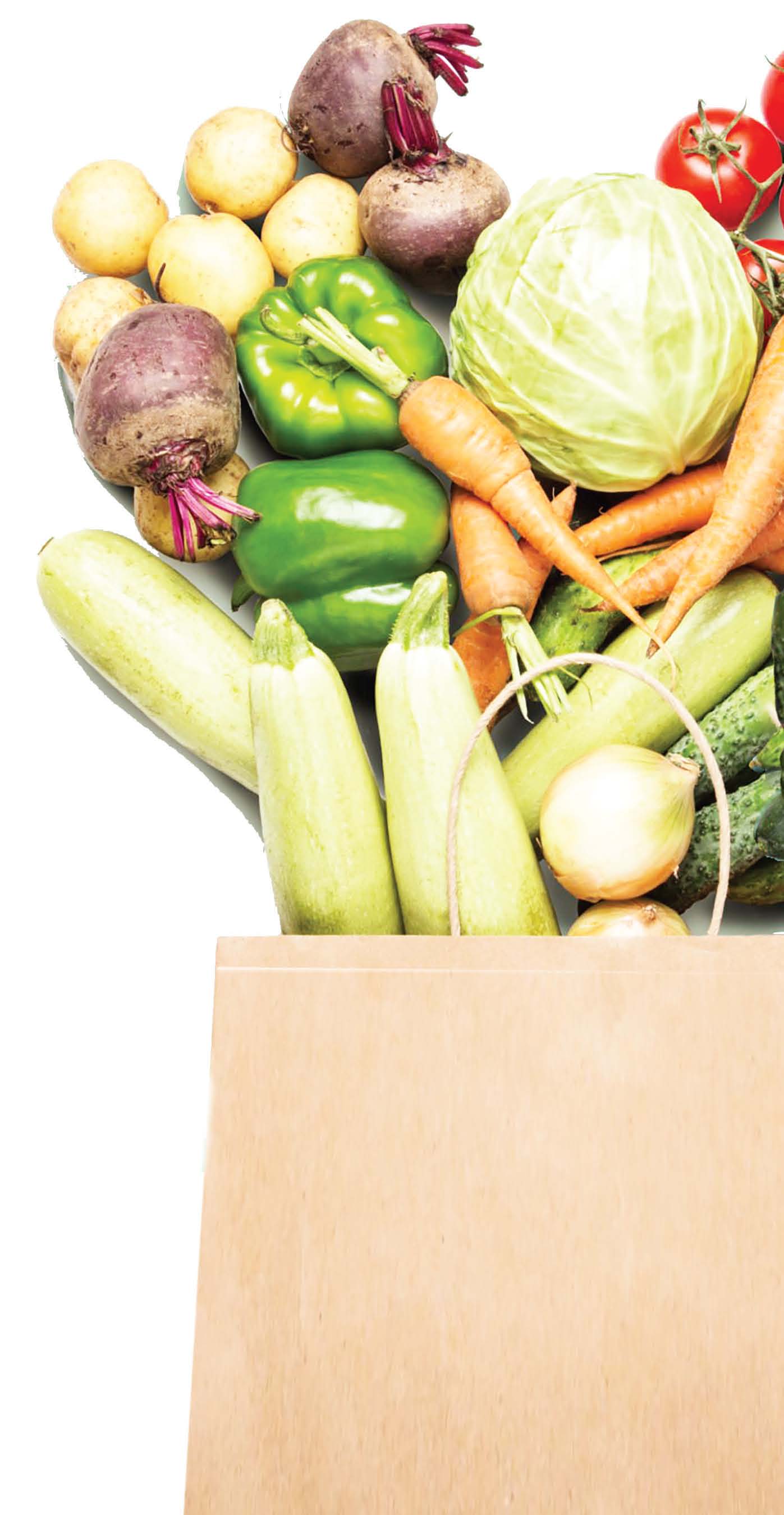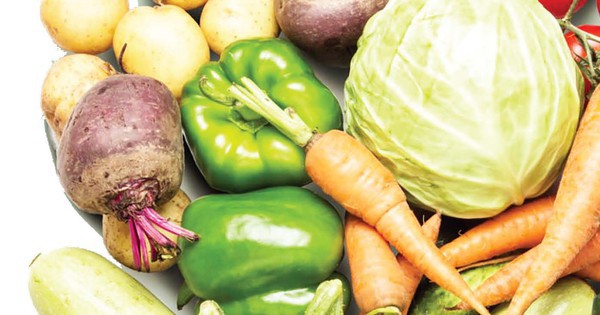As the cold of winter gives way to the gentle warmth of spring, it is the perfect time to rejuvenate and improve your health. Spring is the season of rebirth and growth, bringing with it a variety of delicious fresh fruits, rich in vitamins, minerals and antioxidants that you should not miss to boost your body's immune system.
How does eating fruits and vegetables benefit the immune system?
The body's immune system is a system built with powerful defense mechanisms that not only fight off foreign invaders such as viruses and bacteria, but it also learns to recognize new harmful agents to better protect the body. However, to strengthen immunity, we need to have a good foundation of health. This involves a variety of supportive behaviors, from getting enough rest, controlling stress levels, exercising regularly and especially eating a nutritious diet.
Nutrients in fruits and vegetables have been identified as important for the development and function of immune cells, including vitamins and minerals such as: Vitamins A, C, D, zinc, selenium, iron, fiber and especially vitamin C.
According to Associate Professor, Dr. Nguyen Thi Lam, former Deputy Director of the National Institute of Nutrition, vitamin C is a factor involved in the immune system because vitamin C participates in the production of factors related to the immune system and antibodies.
Vitamin C is a water-soluble vitamin that acts as an antioxidant and plays an important role in immune function. Adequate vitamin C intake can help reduce the symptoms and shorten the duration of respiratory infections such as colds, bronchitis, or sinusitis. It can also improve and reduce the incidence of other diseases such as pneumonia, malaria, and diarrhea.
Scientists have also discovered that the microbiome plays an important role in immune function. The gut is the main site of immune activity and production of antimicrobial proteins. A diet high in plant-based fiber with plenty of fruits and vegetables supports the growth and maintenance of beneficial bacteria in the gut, stimulating immune cell activity.

Some fresh and healthy vegetables and fruits in Spring
After a long, cold winter, spring is a season of rebirth and growth that brings a variety of delicious fruits, providing many vitamins, minerals and antioxidants that are good for overall health.
While most fruits and vegetables support immunity through varying amounts of water, fiber, and phytonutrients, some stand out due to their high levels of immune-boosting nutrients.
Citrus fruits
Citrus fruits are the most ripe fruit of the spring. They are a rich source of immune-boosting nutrients, especially vitamin C. Additionally, citrus fruits are full of antioxidants that fight free radicals, helping to protect the body against disease.
Oranges are a citrus fruit that is high in vitamin C, fiber, and other beneficial nutrients that help boost the immune system and improve heart health. The flavonoids found in oranges have anti-inflammatory effects and help protect the body against oxidative stress.
You should choose to eat oranges with fresh, thin skin. Gently squeeze the skin to see the essential oil coming out. Choose ripe oranges with yellow spots, not uniform in color, medium-sized oranges, firm in the hand. Fresh oranges have a characteristic aroma when eaten, are juicy and sweet.
When eating oranges, eat the whole segment to take advantage of the fiber. Limit the use of bottled orange juice because these products can contain a lot of sugar, do not provide as many vitamins as fresh orange juice and are low in fiber.
Tangerine is also one of the fruits with the highest vitamin C content. 100g of tangerine contains 38kcal; calcium 35mg; iron 400mcg; fiber 600mg; phosphorus 17mg; vitamin C 55mg...
Tangerines are easy to preserve, used to eat fresh or make delicious juice. You should choose tangerines with fresh stems, firmly attached to the skin, and peeled off by hand, then they are delicious. Tangerines that have been left for a long time often have wilted stems and turn brown. Delicious tangerines are usually the same color all over the fruit or have yellow skin. Those with mixed yellow and green colors are often sour.
Berries
Berries like strawberries, blueberries, and raspberries are not only delicious, but they are also high in vitamin C and other compounds that support a healthy immune system. The diverse antioxidant benefits of berries help protect the body's cells from oxidative stress and support healthy aging.
Green leafy vegetables
The spring climate is very favorable for the growth of dark green leafy vegetables such as spinach, kale, broccoli, cabbage, etc. These vegetables are rich in essential nutrients including fiber, vitamins A, C and folate. Vitamin A is important for maintaining the health of the skin and mucous membranes, acting as a barrier against pathogens. Meanwhile, folate plays a role in the production of DNA and supports the division of immune cells.
According to MSc. Dr. Le Thi Hai, former Director of the Nutrition Consultation and Examination Center, National Institute of Nutrition, fresh dark green vegetables are an important source of vitamins and minerals for the body. The darker the vegetable, the higher its nutritional value.
Papaya
Papaya is one of the healthy fruits with very high nutritional content, especially fiber and antioxidants such as vitamins A, C and E.
According to nutritional content analysis, a medium-sized papaya (about 275g) contains about: 119 calories; 1.3g protein; 30g carbohydrates; less than 1g fat; 4.7g fiber; 21.58g sugar.
Papaya contains both papain and chymopapain enzymes. Both enzymes digest protein, which means they can aid digestion and reduce inflammation while boosting immune function.
When choosing papaya, you should choose long papayas with the stem still sticky with sap, the fruit will be sweet, delicious, have few seeds and thin skin. You should not choose ripe yellow fruits with beautiful appearance because they may have been injected with chemicals. Naturally ripe fruits often have tanned skin, with tiny black dots.
Carrot
Carrots have immune-boosting properties including vitamins A, B, B2, B3, C, K and beta-carotene. Carrots are also rich in antioxidants, including lutein and zeaxanthin, which help prevent aging and fight free radical damage.
You can eat carrots raw or cooked. Dishes using carrots such as carrot soup, carrot porridge are also very easy to eat, easy to absorb, suitable for young children, especially children with anorexia and diarrhea.
Bell pepper
Bell peppers are naturally high in antioxidants, including large amounts of immune-boosting vitamin C and vitamin A. The antioxidants in bell peppers also keep our eyes, skin, and brain healthy.
Bell peppers come in a variety of colors, the most common being red, yellow, and green. Less common are orange, brown, white, and purple. Of these, red bell peppers contain the most health-promoting nutrients. Compared to green bell peppers, red bell peppers have nearly 11 times more beta-carotene and twice as much vitamin C.
In fact, bell peppers have more vitamin C than oranges. This is one of the most prominent antioxidants, which helps support immune function, facilitate cell repair, aid in folate absorption, and support collagen production.
Red bell peppers contain the highest amount of lycopene and contain a large amount of vitamin A, with 47% of the recommended daily amount of vitamin A in just half a cup of raw red bell peppers. Vitamin A is an antioxidant that can boost the body's immune system. Vitamin A is also helpful in supporting skin cells, protecting vision, and healing wounds. It is also necessary for building important cells that fight infections.
We should choose bell peppers grown organically, not only are they safe for health but organic bell peppers contain the best antioxidant content.
Nutrients in fruits and vegetables have been identified as important for the development and function of immune cells, including vitamins and minerals such as: Vitamins A, C, D, zinc, selenium, iron, fiber and especially vitamin C.
Source: https://giadinh.suckhoedoisong.vn/6-loai-rau-qua-nen-an-de-tang-cuong-mien-dich-172250201163656523.htm


















































Comment (0)